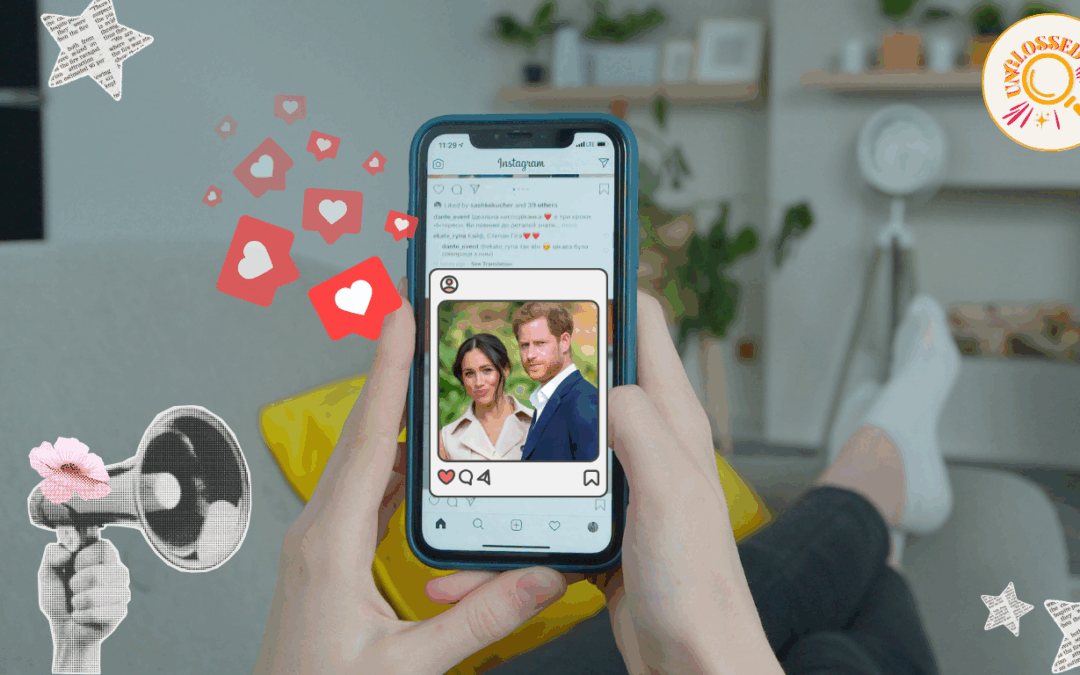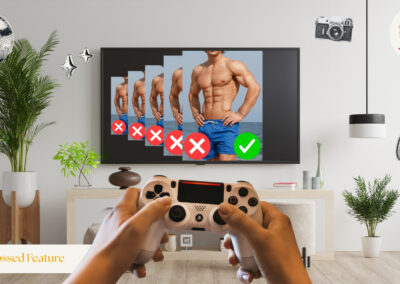In an industry so focused on views and likes, it must be hard for influencers to avoid falling into the trap of trying to be what everyone else wants them to be. But marketing and branding strategist Jayne Paynter explains that those who avoid this bait, are the ones whose personal brands flourish.
Jayne Paynter, who has years of experience in brand strategy, including almost a decade working in the marketing team for Coca Cola, says that more than ever, authenticity is absolutely key, especially in a world fuelled by angry Reddit posts and people trying to find faults in others.
“The tabloids, content creators and everyone in between are actually looking to find flaws. If you are selling a cellulite cream, the press or anyone with a phone, will be dying to catch a picture of you on the beach where you have cellulite on show.
“Consistency means authenticity. The best brands are consistent brands, who know who they are, stick to their core values and therefore their consumers or followers know what they are getting. Especially for personal brands, you need to be able to adapt, change and flex, and also take accountability because everyone has huge failures, even well- oiled brands and businesses. But the crooks of it is that people are going to see through it when you aren’t being true to yourself and if you aren’t being transparent about what you are promoting.”
So, how easy is it to actually be true to yourself when you are constantly growing and evolving? Arguably, not that easy. I know for myself, youtubers I once loved because I found them relatable and lived for their H&M hauls, now post weekly vlogs shopping in Dior and holidaying in Marbella, so suddenly their vlogs make me frustrated rather than feeling like a comfortable safe place. And whilst that’s sad, I recognise that their lives have moved on, and with success and money, things change. They would for me too. I’m not bitter, just disappointed. Plus, maybe if they were sat in their Notting Hill mansions showing me their Primark new in haul, I’d find it condescending? For me, it just makes me painfully aware that I’m probably not their audience anymore, and that’s okay!
What feels like a social experiment for who will and won’t make it, is Islanders in their first year out of the villa. It’s pretty insane how quickly some clear up on brand deals and partnerships, whereas others begrudgingly slip right back into their old life (while attending the odd White Fox party and filming a day in the life on TikTok).
“I’d imagine when someone comes out of Love Island, they probably have goals and intentions for where they want to go. But without guidance or tactical goals what will they do? You can pay a manager or a content creation team, but you need to know what return you are getting on that. Now with social media, you can have such quick global appeal but you can also lose it so quickly. When we were doing marketing strategies twenty years ago, we had to justify everything, every little cost and decision. Now you can have such quick and cheap viral moments, but they disappear within a day. And lots of brands and people are diving straight into that communications without having put the planning in beforehand. Taking a more strategic and gradual approach, would lead to you having a better foundation for your brand.” Says Jayne.
A real life example of this is of course, Love Island alumni Molly Mae, whose success seems to be entirely built on her and her audiences trust for each other. In the second season of her Amazon Prime chart topping documentary ‘Molly Mae Behind It All’ her open vulnerability became even more apparent. From talking about her relationship, to her journey through motherhood and childhood trauma, it appears that part and parcel of being an influencer (can she even be classed as an influencer anymore? Or should it be girl boss?) on that scale is accepting that being open is really your only option. Perhaps that’s the real reason everything she touches turns to gold.
Despite a few teething problems with her clothing brand Maebe, ultimately it was a complete sell out. Same with when she launched Filter By Molly Mae, and posted about a Cheshire Farm Shop, which has since been forced to close it’s café on weekends because of the number of Molly Mae fans who were turning up. To say she has ‘influence’ feels like an understatement.
Jayne says, “A big aspect of being a successful public figure is just conveniently being what people want or need. So yes, whilst Molly Mae has a great team behind her, there was also something at the time which meant there was an audience for her. You can’t predict that, and you can’t even try to mould yourself to be that. It’s sort of just luck if people warm to you and like you. But what you can do is prepare and plan strategically to try to make the most of every opportunity. So, for instance, if you were coming out of Love Island, you can piggy back off the interest and all the noise to really play into what your audience has enjoyed about you. Say they liked your clothing, or your humour. This may seem calculated and manipulative, but really it’s jumping onto values which already exist within you and magnifying them for the world.”

Jayne tells us, “It is definitely tricky for influencers and celebrities in terms of their longevity, and maintaining even an ounce of privacy. If I think about myself when I was twenty, I was really different, so you do risk your audience not keeping up. But then again, my morals, and who I am at my core is the same, it’s just shifted slightly as my environment and lifestyle has changed- I still vote for who I vote for, I still believe in the same things etc. So in terms of personal branding it’s about being tactical yet authentic. Make sure your core values stay the same, and keep followers and consumers in the loop as you evolve.”
One question we wanted to explore with Jayne is where the line falls between marketing and manipulation. When being liked is part of your job, how do you make sure you’re not just performing a role?
“In all honesty, marketing is manipulation. Well to an extent at least. You can still do it ethically, but it can be hard. Part of building a brand- personal or a business, is playing and being the part. If an influencer or celebrity wants to be the face of a brand, they need to be able to fully encapsulate that brand authentically. If the brand forces them to have an opinion or act in a way unnatural to them, it won’t land, but sometimes they will need to emphasise a part of themselves to be what is required to make a campaign successful.” Jayne explains.
“The collaboration and paid ads aspect is really important too for personal branding, someone who claims to care for the environment or care about body positivity, then collabs with a brand who does the opposite, people see through that. Even at the start of an influencer career, you must have that in mind.”
Ultimately, in an industry driven by visibility and validation, it’s clearly those who stay grounded in authenticity who build the most enduring personal brands. As Jayne points out, growth is inevitable and even necessary, but when core values remain consistent, the audience is probably more likely to grow with you. Navigating the balance between strategy and sincerity isn’t always straightforward, but it’s clear that the strongest personal brands are built not by trying to please everyone, but by showing up with honesty, consistency, and a clear sense of self. So it’s probably just how perfectly Molly Mae, Molly Mae is, which has made the world so obsessed with her.











